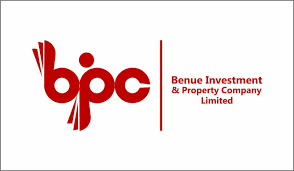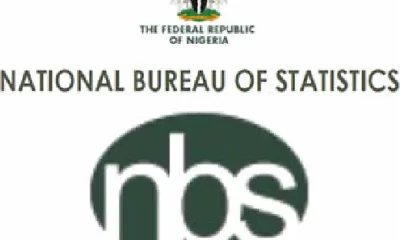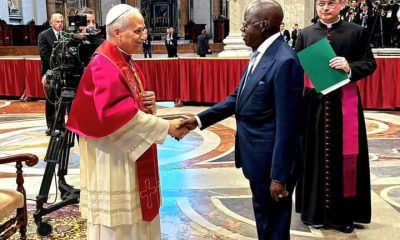COVER
eNaira Launch: Buhari Projects $29bn GDP Growth in 10yrs
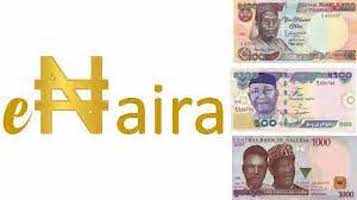
By Tony Obiechina, Abuja
President Muhammadu Buhari said yesterday that the adoption of Central Bank Digital Currency (CBDC) will increase the country’s Gross Domestic Product (GDP) by $29 billion over the next 10 years.
Buhari said at the formal unveiling of Central Bank of Nigeria (CBN) Digital Currency, eNaira at the Presidential Villa, Abuja.
He said by the introduction of the eNaira, Nigeria had become the first country in Africa, and one of the first in the world to introduce a digital currency for its citizens.
The president said there were Nigeria-specific benefits of the digital currency that cut across different sectors of the economy.
“In recent times, the use of physical cash in conducting business and making payments has been on the decline; this trend has been exacerbated by the onset of the COVID-19 pandemic and the resurgence of a new Digital Economy.
“Alongside these developments, businesses, households, and other economic agents have sought for new means of making payments in the new circumstances.
“The absence of a swift and effective solution to these requirements, as well as fears that central banks’ actions sometimes lead to hyperinflation created the space for non-government entities to establish new forms of private currencies that seemed to have gained popularity and acceptance across the world, including here in Nigeria.
“In response to these developments, an overwhelming majority of central banks across the world have started to consider issuing digital currencies in order to cater for businesses and households seeking faster, safer, easier and cheaper means of payments’’, he said.
According to the President, a handful of countries including China, Bahamas, and Cambodia have already issued their own CBDCs.
Buhari said that a 2021 survey of central banks around the world by the Bank for International Settlements (BIS) found that almost 90 percent were actively researching the potential for CBDCs.
He said that the survey also found that 60 percent were experimenting with the technology while 14 percent were deploying pilot projects.
“Needless to add, close monitoring and close supervision will be necessary in the early stages if implementation to study the effect of eNaira on the economy as a whole.
“It is on the basis of this that the CBN sought and received my approval to explore issuing Nigeria’s own CBDC, named the eNaira.
“This move was underpinned by the fact that the CBN has been a leading innovator in the form of money they produce, and in the payment services they deploy for efficient transactions.
“They have invested heavily in creating a payment system that is ranked in the top ten in the world and certainly the best in Africa.
`This payment system now provides high‐value and time‐critical payment services to financial institutions, and ultimately serves as the backbone for every electronic payment in Nigeria.’’
President Buhari said the apex bank had also supported several private‐sector initiatives to improve the existing payments landscape, and in turn, had created some of the world’s leading payment service providers.
“While the journey to create a digital currency for Nigeria began sometime in 2017, work intensified over the past several months with several brainstorming exercises, deployment of technical partners and advisers.
“Collaboration with the Ministry of Communication and Digital Economy and its sister agencies like the Nigerian Communications Commission, integration of banking softwares across the country and painstaking tests to ensure the robustness, safety and scalability of the CBDC System.
“Let me note that aside from the global trend to create digital currencies, we believe that there are Nigeria-specific benefits that cut across different sectors of, and concerns of the economy.
“The use of CBDCs can help move many more people and businesses from the informal into the formal sector, thereby increasing the tax base of the country.
“Alongside digital innovations, CBDCs can foster economic growth through better economic activities. Indeed, some estimates indicate that the adoption of CBDC and its underlying technology, called blockchain, can increase Nigeria’s GDP by 29 billion dollars over the next 10 years’’, President Buhari added.
He said that CBDCs could also help to increase remittances, foster cross border trade, improve financial inclusion, make monetary policy more effective, and enable the government to send direct payments to citizens eligible for specific welfare programmes.
“It is on these basis that I am delighted to officially launch the CBN Digital Currency, called the eNaira, and in so doing, we have become the first country in Africa, and one of the first in the world to introduce a Digital Currency to her citizens.’’
Buhari commended CBN Governor, Godwin Emefiele, his deputies and the entire members of staff who worked tirelessly to make the day a reality.
…CBN Releases N200m for Take-off
The CBN Governor, Mr Godwin Emefiele, in his remarks, said 33 banks have integrated into the eNaira platform with N500m successfully minted by the apex bank for the take-off of the digital currency programme.
The CBN Governor, Mr Godwin Emefiele, said this yesterday at the official launch of the Nigerian Central Bank Digital Currency (CBDC), known as the eNaira, at the State House, Abuja.
The launch of the eNaira was a culmination of several years of research work by the Central Bank of Nigeria in advancing the boundaries of payments system in order to make financial transactions easier and seamless for every strata of the society.
Following series of engagements with relevant stakeholders including the banking community, Fintech operators, merchants and a cross section of Nigerians, the CBN designed the digital currency.
The eNaira, according to the apex bank, marks a major step forward in the evolution of money in Nigeria.
Speaking at the event, Emefiele said since the eNaira platform went live, there has been overwhelming interest and encouraging response from Nigerians and other parties across the world with over 2.5 million daily visits to the website.
He said so far, N200m has been issued to financial institutions, while over 2,000 customers have been on boarded.
According to him, over 120 merchants have successfully registered on the eNaira platform.
“Today, customers who download the eNaira Speed Wallet App will be able to onboard and create their wallet; fund their eNaira wallet from their bank account; transfer eNaira from their wallet to another waller; make payment for purchases at registered merchant locations.
“Mr President, today you make history, yet again, with the launch of the eNaira – the first in Africa and one of the earliest around the world.
“Mr. President, as you make ground breaking reforms, there have been continuing debate on the true value of the Naira.
“Rather than worry today on the direction of the exchange rate, let us take a step back and analyze how we got here in the first place”, he said.
While unveiling the eNaira platform, President Muhammadu Buhari commended the CBN Governor and the entire management staff of the Bank “who worked tirelessly to make this day a reality”.
He further commended the apex Bank for ensuring that Nigeria became the first country in Africa to introduce the Digital Currency and one of the first in the whole world.
COVER
APC Govs, NASS, Party Leaders Adopt Tinubu for 2027 Presidential Poll
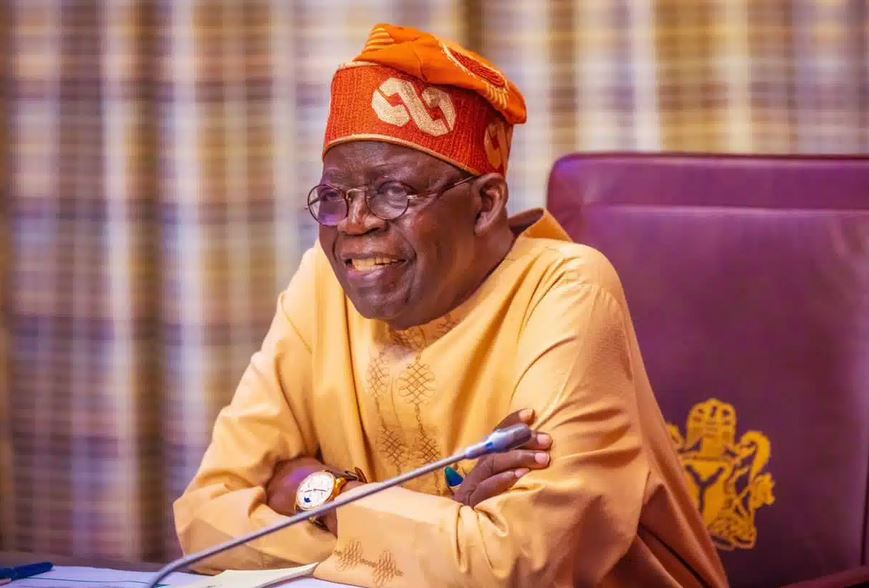
By David Torough, Abuja
The 22 All Progressives Congress (APC) governors yesterday adopted President Bola Tinubu as the sole presidential candidate of the party for the 2027 general elections.This was even as the leaders of both the Senate and the House of Representatives expressed their full support for Tinubu’s second term, stating that the country is currently on a path of growth and progress.
The Progressives Governors’ Forum (PGF’s) Chairman and governor of Imo State, Sen. Hope Uzodimma, spoke on behalf of all the governors at the National Summit of APC at the Banquet Hall of the State House, Abuja.The governors also passed a vote of confidence in President Bola Tinubu.The Vice Chairman of the PGF and Governor of Kaduna State, Senator Uba Sani, joined Governor Uzodimma on the podium to second the motion for the adoption of the President as APC presidential candidate for 2027 poll.Thereafter, Uzodimma put the motion to vote before the participants at the National Summit.Those present were Vice President Kashim Shettima; Senate President, Godswill Akpabio; members of the National Assembly; serving and former governors, and APC members from across the 36 states and the Federal Capital Territory.They, through voice vote and standing ovation, adopted President Tinubu for a second term in office come 2027.Uzodimma said the governors were united in their support for Tinubu’s re-election bid.He said: “That for Nigeria to get to her destination faster in prosperity, that the president should be used and adopted as our flag bearer for the 2027 presidential election, for a second term in office.“That the governors produced by our All Progressives Congress are hereby charged to take responsibility to market our federal government policies, occupy the political space in their domains, and take responsibility for winning all elections in their states come 2027.“It is therefore my humble pleasure, with total humility, to Almighty God to move that this August assembly adopt and concur the position of progressive governors that Mr President carries our flag 2027 and governors take responsibility for delivering this mandate. I’m so move as a motion.”Governor Sani seconded the motion: “I rise to second the motion as ably moved by the chairman of Progressives Governors Forum, the governor of Imo state, His Excellency, Hope Uzodimma, that this August gathering pass a vote of confidence on our able and amiable president, President Bola Ahmed Tinubu, as a sole candidate of APC come 2027 general election.NASS Leadership Endorses Tinubu for 2027 ElectionThe leaders of both the Senate and the House of Representatives have expressed their full support for President Bola Tinubu’s second term, stating that the country is currently on a path of growth and progress.Senate President Godswill Akpabio, who moved the motion on Thursday during the APC National Summit at the State House banquet hall in Abuja, acknowledged that the 2023 election posed significant challenges for President Tinubu.Joined by the Speaker of the House of Representatives, Tajudeen Abbas, Deputy Senate President Barau Jibrin, and Deputy Speaker Benjamin Kalu, among others, Akpabio expressed optimism about the future.He predicted that Tinubu would secure even more states in the 2027 elections, stating that he sees a clear shift in momentum in the President’s favour.Akpabio remarked that despite the challenges, President Tinubu is actively working to reposition Nigeria.The Senate President stated that with opposition parties, particularly the PDP, in disarray, President Tinubu should be re-elected in 2027 as the sole candidate.Akpabio’s position was fully supported by other National Assembly leaders, with no dissenting voices.APC Endorses Tinubu for 2027 Presidential RaceThe All Progressives Congress has endorsed President Bola Tinubu as its flag bearer in the 2027 presidential elections.The Party’s National Chairman, Dr. Abdullahi Ganduje, announced this yesterday, on behalf of its National Working Committee, at its National Summit held at the State House Banquet Hall, Abuja.The endorsement came hours after APC governors and lawmakers cast a vote of confidence on the president and endorsed him for a second term.‘Sweep them Clean,’ Bring More Opposition Members – TinubuPresident Bola Tinubu has welcomed the gale of defections in the ruling All Progressives Congress, saying he expects more opposition party members to join his party.The President said this at the APC National Summit on Thursday in Abuja.In his speech, the President said he is happy about the wave of defections into the APC and urged the ruling party’s leadership to bring in more opposition members.President Tinubu also slammed critics who accused his government of installing a one-party state due to the recent gale of defections. He said those defecting to the APC should not be blamed because they were in a sinking ship.The President said, “You don’t blame people bailing out of a seeking ship, when they have no life jacket. I am glad of what we have and I’m expecting more to come. That’s the game. We are in a constitutional democracy; don’t forget the freedom of movement and freedom association is not criminally punishable. Welcome to the progressives, sweep them clean.”Earlier, the APC National Working Committee members led by the party’s National Chairman, Abdullahi Ganduje, endorsed President Tinubu for a second term.The endorsement followed the National Assembly’s declaration of support for the President as their sole candidate for the 2027 presidential election.Sen. Godswill Akpabio, the President of the Senate, moved the endorsement, which was seconded by Hon. Tajudeen Abass, the Speaker of the House of Representatives.Defect with Me to APC or Resign, Gov Eno Tells Commissioners, OthersAkwa Ibom State Governor, Pastor Umo Eno, has directed all commissioners and political appointees in his cabinet to either defect with him to the All Progressives Congress, APC, or resign from their positions.The directive was reportedly issued during an ongoing State Executive Council (EXCO) meeting on Thursday, where the governor openly confirmed his decision to leave the People’s Democratic Party, PDP, for the APC.Sources present at the meeting disclosed that Governor Eno made it clear that his defection should come as no surprise to any of his appointees, stating:“Anybody who claims he is not aware of my intention to leave the PDP is still living in the 18th century,” he said.He explained that his decision to align with the APC was driven by his admiration for the leadership style of President Bola Tinubu, adding that he wants to work more closely with the Federal Government.The governor issued a stern warning to his appointees, saying he has “nothing to negotiate” with anyone unwilling to follow his political direction.“Apart from elected officials like House of Assembly members and Local Government Chairmen, I have nothing to negotiate with you,” Eno declared.“Let me tell you, anybody who believes that when I leave the PDP he will use the party structure to fight me is lying, because I will still control the PDP structure.”As of the time of filing this report, the State Executive Council meeting was still in session, with further developments expected in the coming hours.Nigerian Voters, not Govs ‘ll Decide Tinubu’s Fate in 2027 – WabaraOn the contrary, former Senate President and the Chairman Board of Trustees, BoT, of Peoples Democratic Party, PDP, Senator Adolphus Wabara, has said that the Nigerian electorate, and not a few governors, will decide the fate of President Bola Tinubu in 2027.Senator Wabara was reacting to the adoption of Tinubu by APC governors as their sole candidate for the 2027 presidential race.However, he commended the governors for giving the President the right of first refusal, which he acknowledged “is a global practice and tradition”. But he added that being the flag bearer of the ruling party does not translate to automatic victory at the pool.Senator Wabara recalled that in 2015, PDP’s presidential flag bearer, President Goodluck Jonathan, was a sitting President but lost to the then opposition APC’s candidate.The former Senate President told the APC governors to allow President Tinubu’s work to speak for him.He said that the Nigerian masses “Who on a daily basis, feel the impact of the APC-led Federal Government, are the only ones to decide the President’s fate in 2027”.The PDP BoT Chairman argued that “it’s too early to overheat the polity with 2027 elections when INEC has not lifted the ban on campaigns.He “advised APC governors to rather concentrate on how to make life affordable for Nigerians, who are battling to survive the hardship inflicted on them by APC’s maladministration”.The former Senate President accused the APC of foisting one party system on Nigeria. He warned of the grave danger such drifting poses to the country’s democracy.COVER
Renewed Herdsmen Attacks Kill Two Soldiers, Two Villagers in Benue

From Attah Ede, Makurdi
Gunmen suspected to be armed herdsmen have reportedly killed four persons, including two soldiers in a renewed attack on a community in Apa Local Government Area of Benue State.The latest attack had led the residents to flee to Ugbokpo headquarters of Apa LGA where they are taking refuge.
Some locals who spoke to DAILY ASSET yesterday identified the attacked communities as Ikobi which is located just a few kilometres away from Ugbokpo, the headquarters of Apa local government area. According to residents, the incident happened on Wednesday at about 3:30AM when the assailants invaded the community in a commando style, ambushing the soldiers who were conducting surveillance in the area and allegedly killing two of them.An eyewitness, who spoke on condition of anonymity, told DAILY ASSET through text message on Thursday that “The herdsmen, yesterday (Wednesday) attacked and killed four persons including two soldiers and made away with the military’s two AK47 and one SMG Gun, at Ijaha Ikobi, in Apa Local Government Area of Benue”.He gave the names of the civilian victims (Natives), who were killed to include; Ocheje Ngbede Sani and Aduba Paul Ogboyi, while names of the two soldiers killed as at the time of filing this report, were yet to be unknown.He lamented that the current security situation in Benue State called for concern of everyone and the entire Nigeria.The source insisted that both military and other paramilitary ought to have taken over the whole surrounding bushes in Apa and Agatu, to clear the insurgents and free the areas for farmers to farm peacefully.”This is a wakeup call to “Mopol 80″ stationed at Odugbo, to rise up to their responsibilities and face the criminal herders headlong and clear the bushes in Apa and Agatu axis and even other parts of zone C. Enough is enough! No one has a monopoly of violence”, he said.”We pray for the souls of the innocent farmers and Gallant Officers who were killed at Ijaha Ikobi in Apa and the souls of others, rest in peace Amen,” he added.Council’s chairman of Apa local government, Adam Ochega Ogwola confirmed the incident to newsmen in Makurdi on Thursday, describing the killing of the soldiers and innocent civilians as quite disturbing.”Yes, I can confirm that two soldiers and two other civilians were killed by herders.”At about 3:30am yesterday I received a call that there was an attack in the Ikobi community and when I called some people, there was no response from them. Later I heard that two soldiers were killed. So this morning, they discovered the bodies of the two civilians.”The attack took place at Ikobi community in Apa. The situation is relatively calm now. Soldiers and police are there to carry out their investigation to ensure that normalcy returns to that community.”Because of the culture of our people, you don’t normally keep accidental dead bodies in the mortuary. We are in the period of hit and run herders. When it happens we may not allow the corpse(s) to stay beyond 24hrs. So, they have been buried while the bodies of the late soldiers have been moved from that community. But I don’t know whether they are in a mortuary in Ugbokpo or in a mortuary in Makurdi”, the chairman stated.Effort to get confirmation from the Benue State Police Command proved abortive as the spokesperson for the command, Catherine Anene could not respond to calls and texts messages as at the time of filing this report.COVER
Again, Dangote Refinery Slashes Petrol Prices Nationwide

By Tony Obiechina, Abuja
The Dangote Petroleum Refinery has announced a fresh cut in the pump prices of Premium Motor Spirit (petrol) nationwide.The new rates now range from N875 to N905 per litre, depending on location.A breakdown of the revised prices shows, Lagos: N875, South-West N885, North-East: N905, North-West & Central: N895, and South-South & South-East: N905Prices indicate a N15 reduction per litre across all regions and partner retail outlets, applying to all major fuel marketers in partnership with the refinery, including MRS, Ardova, Heyden, Optima Energy, Techno Oil, and Hyde Energy.
Before the new price template, Lagos residents paid N890 per litre, while prices rose to N920 in the North East and South-South regions.Lagos residents will now pay N875, while those in the North East and South South will pay N905 per litre with the new adjustments.“Our quality petrol and diesel are refined for better engine performance and are environmentally friendly,” the company stated in the notice.The development comes after the 650,000 Lekki-based refinery on Monday said the naira-for-crude deal allowed it to reduce the price of petrol at the pumps.In a statement signed by its Group Chief Branding and Communications Officer, Anthony Chiejina, the company said the decision to maintain price stability reflects its unwavering commitment to supporting the Nigerian economy and alleviating the burden on consumers from the increase in fuel prices by maintaining price stability.The company affirmed that the prices of petrol will remain affordable and stable.





